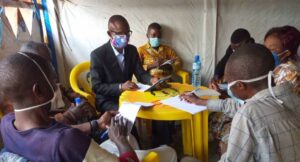
Soutenir les coopératives minières à Beni
La population du territoire de Beni est victime de violences mortelles depuis 2014, suite à la présence de groupes armés nationaux et étrangers tels que

Mapping ASM sites in the Central African Republic: Official Presentation in Bangui
In January 2020, IPIS presented the results of its diagnostic report and mapping of artisanal and small-scale mining (ASM) sites and gold supply-chains in western

« L’incapacité et le refus de reformer le système de certification des diamants de conflits »
Aujourd’hui, un autre cycle de trois années de réforme du Processus de Kimberley (PK) a pris fin sans changement significatif. Les États participants ne se
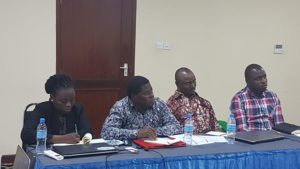
Launch of the second “Voices from Tanzania” series: Business and Human Rights studies with a focus on land rights and environment
In 2019, Business and Human Rights Tanzania (BHRT), the Tanzanian Commission of Human Rights and Good Governance (CHRAGG) and the International Peace Information Service (IPIS)

Mapping ASM sites in the Central African Republic: An update from our field teams
Since February 2019, IPIS is partnering with the Artisanal Mining and Property Rights (AMPR) project from the U.S. Agency for International Development (USAID) to increase
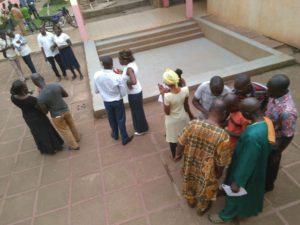
New project of mapping artisanal and small-scale mining sites in the Central African Republic
Following a successful training in Bangui with members from civil society organizations and field officers from the Kimberley Process focal point at the Ministry of

Kufatilia : un nouveau système de Suivi des Incidents de l’Or (SIOr)
« Aujourd’hui un éboulement a fait un mort dans un site minier artisanal près de Numbi. » Voici le type d’information que reçoivent régulièrement par
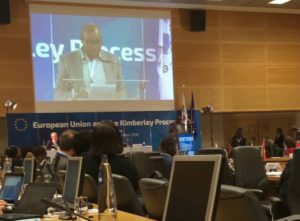
La coalition de la Société civile du PK déçue par la résistance à la réforme du Processus de Kimberley
16 novembre 2018 La Coalition de la Société Civile du Processus de Kimberley (CSC PK) a fortement insisté dans le sens d’une réforme lors de
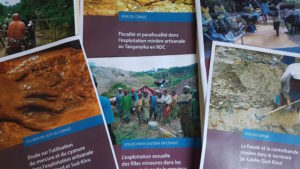
Strengthening local voices: discover IPIS’ partner publication series “Voices from the South”
Since 2017, IPIS has been closely collaborating with civil society actors from central and east Africa who want to share their perspective on subjects related
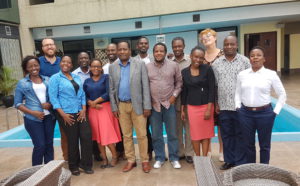
Training workshop: “Field Research and Report Writing on Business and Human Rights”
At the start of August 2018, five Tanzanian civil society organisations gathered in Dar es Salaam for a three-day training on field research and report
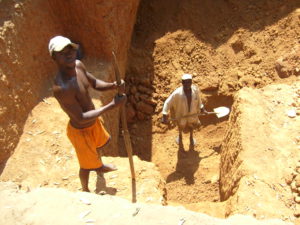
Réunion intersessionnelle du Processus Kimberley : la Coalition de la Société Civile demande une réforme significative de la définition des diamants de conflits
29 juin 2018 Lors de la réunion intersessionnelle du Processus Kimberley qui s’est tenue à Anvers du 18 au 22 juin, la Coalition de la
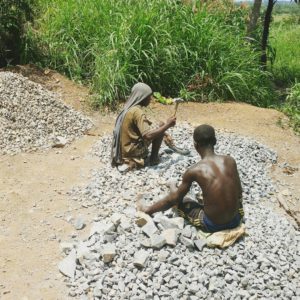
Mobile data collection on mining sites in Kigoma, Tanzania
IPIS is undertaking a large-scale mobile data collection exercise on operational, socio-economic and human rights aspects of artisanal and industrial mining in northwest Tanzania. Building
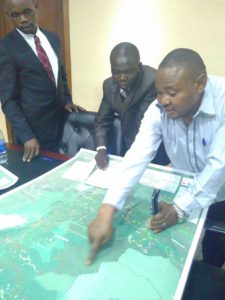
Training and workshop on mapping artisanal mining in Eastern DRC
(French version below) 2373 Mining sites visited, including 470 visits in the last thirteen months. 300 Roadblocks visited on a total of 798 mapped roadblocks.
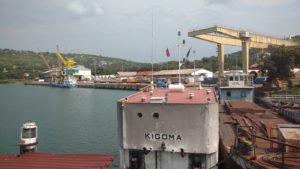
Improving monitoring, research and dialogue on Business and Human Rights in Tanzania
IPIS was in Dar es Salaam to launch its new project on Business & Human Rights with the Tanzanian Commission for Human Rights and Good
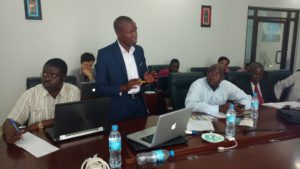
Training and workshop on mapping the socio-economic and human rights impact of mining in northwest Tanzania
On Monday 23 October, IPIS organised a workshop in Mwanza to launch the data collection phase of its mapping project on the socio-economic and human

IPIS launches e-learning for a thorough understanding of the global Arms Trade Treaty
As governments gather in Geneva to discuss how to regulate the global arms trade by implementing the Arms Trade Treaty, the Belgian Research Group IPIS
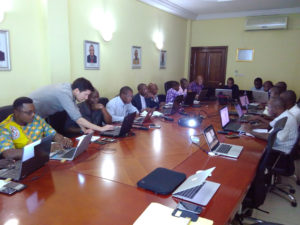
Capacity enhancement workshop on cartography with DRC mining authorities
Capacity enhancement workshop on cartography with DRC mining authorities In the framework of its long standing partnership with DRC mining authorities, IPIS held a workshop
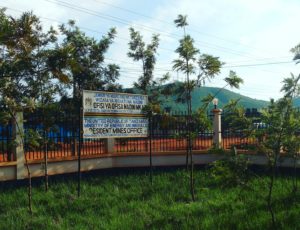
New IPIS project on mining, human rights and digitalization in Tanzania
From late February to early March, two IPIS researchers were in Tanzania to lay the foundations for a new project funded by the Belgian development
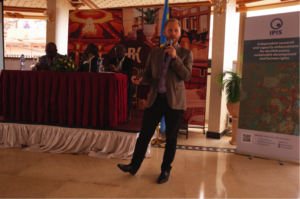
Launch of SAESSCAM database on artisanal and small-scale mining
On February 23rd, IPIS presented in Kinshasa the results of a two years project done in partnership with Pact and Estelle Levin Ltd to support
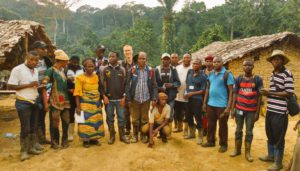
Training on cartography and artisanal mine site inspections in Mambasa
French version below – version française ci-dessous Training on cartography and artisanal mine site inspections – Mambasa, Ituri, DRCongo From 10 to 14 December 2016,

